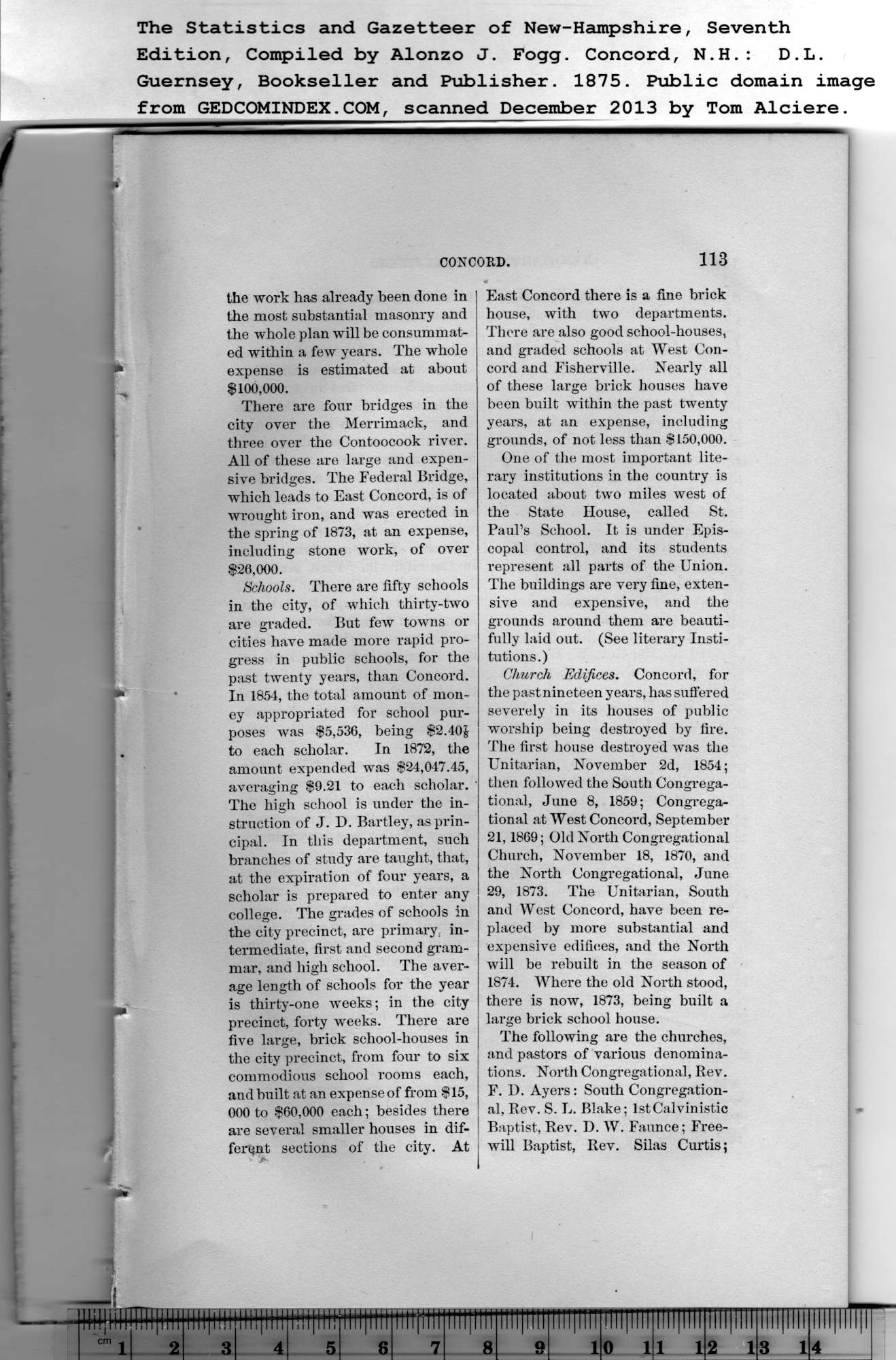|
the work has already been done in
the most substantial masonry and
the whole plan will be consummat-
ed within a few years. The whole
expense is estimated at about
$100,000.
There are four bridges in the
city over the Merrimack, and
three over the Contoocook river.
All of these are large and expen-
sive bridges. The Federal Bridge,
which leads to East Concord, is of
wrought iron, and was erected in
the spring of 1873, at an expense,
including stone work, of over
$20,000.
Schools. There are fifty schools
in the city, of which thirty-two
are graded. But few towns or
cities have made more rapid pro-
gress in public schools, for the
past twenty years, than Concord.
In 1854, the total amount of mon-
ey appropriated for school pur-
poses was $5,536, being $2.40|
to each scholar. In 1872, the
amount expended was $24,047.45,
averaging $9.21 to each scholar.
The high school is under the in-
struction of J. D. Bartley, as prin-
cipal. In this department, such
branches of study are taught, that,
at the expiration of four years, a
scholar is prepared to enter any
college. The grades of schools in
the city precinct, are primary, in-
termediate, first and second gram-
mar, and high school. The aver-
age length of schools for the year
is thirty-one weeks; in the city
precinct, forty weeks. There are
five large, brick school-houses in
the city precinct, from four to six
commodious school rooms each,
and built at an expense of from $15,
000 to $60,000 each; besides there
are several smaller houses in dif-
ferent sections of the city. At
|
East Concord there is a fine brick
house, with two departments.
There are also good school-houses,
and graded schools at West Con-
cord and Fisherville. Nearly all
of these large brick houses have
been built within the past twenty
years, at an expense, including
grounds, of not less than $150,000.
One of the most important lite-
rary institutions in the country is
located about two miles west of
the State House, called St.
Paul’s School. It is under Epis-
copal control, and its students
represent all parts of the Union.
The buildings are very fine, exten-
sive and expensive, and the
grounds around them are beauti-
fully laid out. (See literary Insti-
tutions.)
Clmrch Edifices. Concord, for
the past nineteen years, has suffered
severely in its houses of public
worship being destroyed by fire.
The first house destroyed was the
Unitarian, November 2d, 1854;
then followed the South Congrega-
tional, June 8, 1859; Congrega-
tional at West Concord, September
21,1869; Old North Congregational
Church, November 18, 1870, and
the North Congregational, June
29, 1873. The Unitarian, South
and West Concord, have been re-
placed by more substantial and
expensive edifices, and the North
will be rebuilt in the season of
1874. Where the old North stood,
there is now, 1873, being built a
large brick school house.
The following are the churches,
and pastors of various denomina-
tions. North Congregational, Rev.
F. D. Ayers: South Congregation-
al, Rev. S. L. Blake; IstCalvinistic
Baptist, Rev. D. W. Faunce; Free-
will Baptist, Rev. Silas Curtis; |
